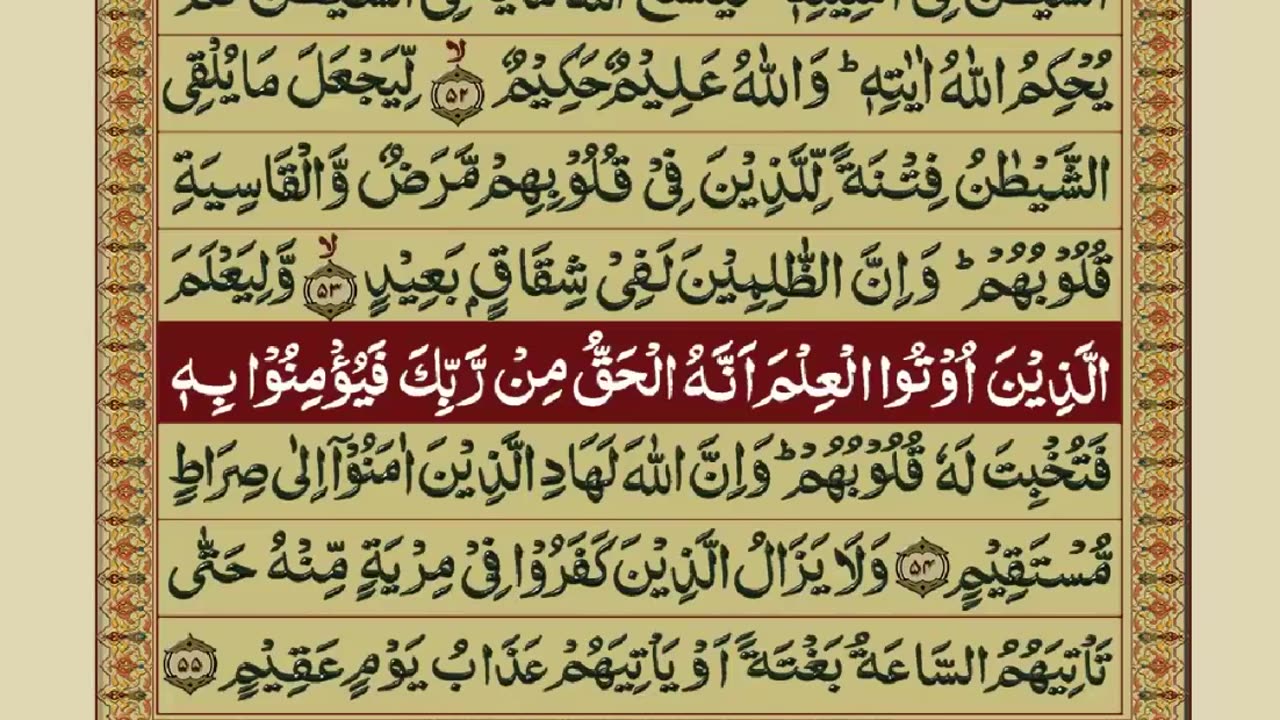Premium Only Content

Quran-Para17_30-Urdu Translation
The Quran is the holy book of Islam, believed by Muslims to be the literal word of God (Allah) as revealed to the Prophet Muhammad over approximately 23 years, beginning in 610 CE. It is written in Arabic and is considered the finest piece of literature in the Arabic language. Here are some key points about the Quran:
### Structure
- **Chapters and Verses**: The Quran is divided into 114 chapters, known as surahs, which vary in length. Each surah is further divided into verses, known as ayahs.
- **Meccan and Medinan Surahs**: The chapters are classified as either Meccan or Medinan, based on whether the verses were revealed before or after the Prophet Muhammad's migration (Hijrah) from Mecca to Medina.
### Themes
- **Monotheism**: The oneness of God (Tawhid) is a central theme, emphasizing that there is no deity but Allah.
- **Prophethood**: The Quran narrates the stories of various prophets, including Adam, Noah, Abraham, Moses, Jesus, and Muhammad, highlighting their roles as messengers of God.
- **Guidance for Life**: It provides guidance on all aspects of life, including moral conduct, family relations, social justice, and legal matters.
- **Afterlife**: It speaks extensively about the afterlife, describing the concepts of heaven (Jannah) and hell (Jahannam), and emphasizing accountability on the Day of Judgment.
- **Social Justice**: The Quran advocates for the rights of the poor, orphans, and women, and promotes justice and fairness in all dealings.
### Language and Recitation
- **Arabic**: The Quran is written in classical Arabic. It is considered inimitable (i'jaz) in its language and style.
- **Recitation**: Reciting the Quran (Tajweed) is an important act of worship for Muslims. The proper pronunciation and intonation are essential for recitation.
### Preservation and Compilation
- **Memorization**: The Quran was initially preserved through oral transmission. Many of the Prophet's companions memorized it.
- **Written Text**: It was compiled into a written text shortly after the death of the Prophet Muhammad, under the Caliphate of Abu Bakr and later standardized under Caliph Uthman.
### Interpretation and Commentary
- **Tafsir**: The interpretation and explanation of the Quran are known as tafsir. Scholars have written extensive commentaries to explain the meanings and contexts of the verses.
- **Contextual Understanding**: Understanding the historical and cultural context of the revelations is crucial for interpretation.
### Significance in Islam
- **Source of Law**: The Quran, along with the Hadith (sayings and actions of the Prophet Muhammad), forms the basis of Sharia (Islamic law).
- **Daily Life**: Muslims turn to the Quran for guidance in their daily lives, seeking its wisdom for personal and communal matters.
### Key Surahs
- **Al-Fatiha**: The opening chapter, a short surah recited in every unit of the Muslim prayer.
- **Al-Baqarah**: The longest surah, containing a wide range of topics including law, prayer, and guidance for personal conduct.
- **Yaseen**: Known as the heart of the Quran, often recited for various spiritual benefits.
- **Al-Ikhlas**: A brief surah that emphasizes the oneness of God.
The Quran remains central to the faith and practice of Muslims, serving as a source of spiritual guidance, law, and wisdom.
-
 38:26
38:26
Donald Trump Jr.
2 hours agoThis 4th of July, A Nation Renewed, Plus Interview with Grab a Gun CEO Marc Nemati |TRIGGERED Ep.256
87.2K105 -
 1:06:51
1:06:51
BonginoReport
3 hours agoEpstein: Is It Time To Take Off The Tinfoil Hat? - Nightly Scroll w/ Hayley Caronia (Ep.84)
47.2K97 -
 LIVE
LIVE
RalliedLIVE
6 hours ago $1.19 earnedSHOTTY BOYS vs THE WORLD - WARZONE CHALLENGES
255 watching -
 LIVE
LIVE
SpartakusLIVE
6 hours ago$18,000 2v2 WZ Total Frenzy Tournament || #1 Comp Champ is BACK
256 watching -
 LIVE
LIVE
The Mike Schwartz Show
4 hours agoTHE MIKE SCHWARTZ SHOW Evening Edition 07-07-2025
4,231 watching -
 LIVE
LIVE
LFA TV
1 day agoLFA TV ALL DAY STREAM - MONDAY 7/7/25
846 watching -
 1:18:05
1:18:05
Kim Iversen
3 hours agoThey Think You’re Stupid: Epstein Case Closed
80K79 -
 LIVE
LIVE
Dr Disrespect
7 hours ago🔴LIVE - DR DISRESPECT - RIDICULOUS WARZONE CHALLENGES
1,184 watching -
 1:44:43
1:44:43
The Officer Tatum
4 hours agoLIVE: Texas Flood UPDATE, Epstein Files + MORE | EP 138
44.8K23 -
 6:20:04
6:20:04
Spartan
7 hours agoPro Halo Player | SWTOR, Halo Later. Scrims vs SSG @ 3 EST and UrNm at 5 EST
10.3K1